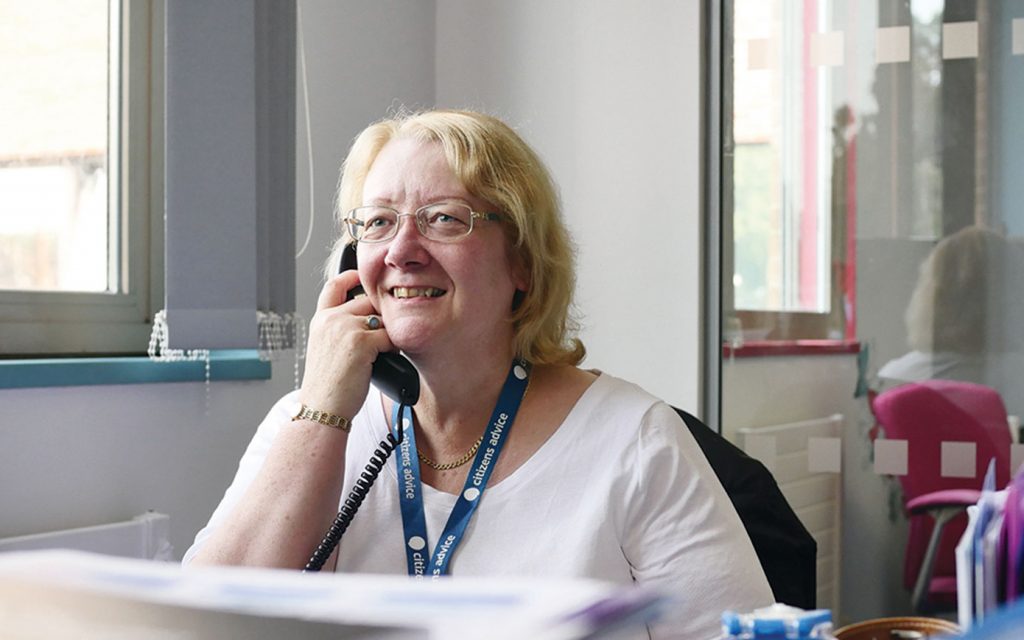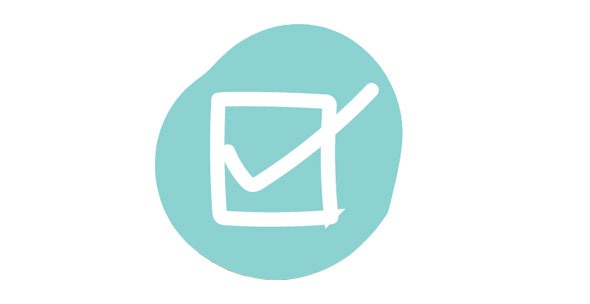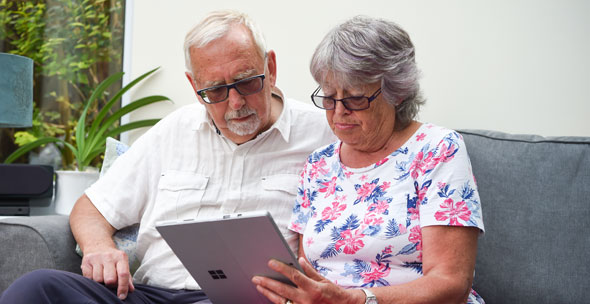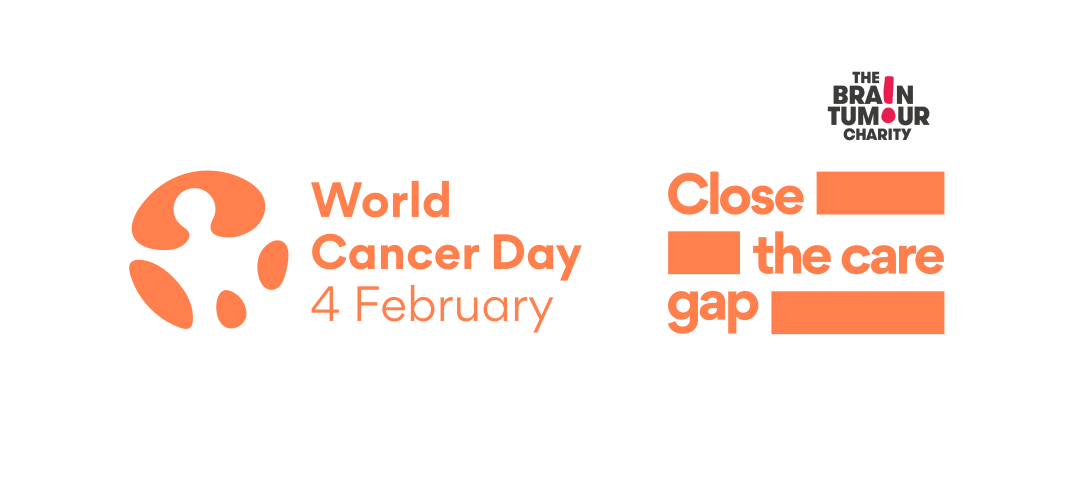This World Cancer Day (4 February) we’re celebrating the fantastic work of the Tessa Jowell Brain Cancer Mission in aiming to identify and share best practice in order to close the care gaps for brain tumour patients across the UK.
Founded in 2018 to lead a new national strategy for brain tumours, the Tessa Jowell Brain Cancer Mission (TJBCM) has led the national assessment for the Tessa Jowell Centres of Excellence. No patient should be left behind due to poor access to care and research, with the Tessa Jowell Centres of Excellence designed to recognise a level of expertise in specific centres.
The Centres place an emphasis on patient quality of life, providing clinical trials and offering a high standard of research opportunities. 28 of the 30 UK Brain Tumour Centres have now participated in this extensive review, with 11 obtaining excellence status and the remaining centres working hard to obtain this status as soon as possible to help drive up standards for patients.
All of the centres who participated underwent an extensive assessment process which included patient feedback collected by The Brain Tumour Charity through our Improving Brain Tumour Care Surveys, about the care patients received in these centres.
Improvements made through the Tessa Jowell Centres of Excellence scheme include:
- increasing access to rehabilitation and psychological support services
- recruiting additional staff members
- developing pathways for tumour biobanking
- widening access to research opportunities for patients.
It’s hoped that these improvements will continue to be made across UK centres, in order to share best practice and close any remaining gaps in care.
As well as working with the Tessa Jowell Centres of Excellence to help close the care gap across the UK, The Charity provides a number of services designed to support those affected by a brain tumour in ways that lessen the impact of the gap.
Connecting people to the right financial support
Our The Price You Pay report revealed a huge gap in care when it comes to supporting people in accessing financial aid after a brain tumour diagnosis. Almost half (46%) of the people we spoke to didn’t receive any information about how to access financial support or any benefits they might be entitled to following their diagnosis.
And, once they had applied, almost half of the people we spoke to reported a bad experience of the benefits system. One in four stated that their experience was very bad and only 15% said they would rate their overall experience as good.
In 2018, to help reduce the impact of this gap, we began partnering with Citizens Advice Rushmoor to provide a weekly telephone clinic offering specialist guidance through the benefits system – from help filling in forms to explaining the appeals process.
This service proved extremely popular and we’ve since expanded to running the clinic twice a week, which proved especially vital for families during the pandemic. From April 2020 to March 2021, our Benefits and Money Clinic supported 285 people, often helping individuals more than once, and helped them claim over £950,000 collectively.

Expert benefits & money advice
Telephone appointments are available for our Benefits and Money Advice Clinic every Tuesday and Thursday from 9.30am to 4.00pm.
Support to understand what comes next
For many in our community, the period after first receiving a brain tumour diagnosis is a frightening and alienating time. Often families are given very little information about what they should expect as they’re passed between one healthcare team to another.
One of the questions our Support and Information team receive most often is simply, “What’s going to happen next?”
To help fill this gap, we collaborated with our community to create an interactive Step by Step guide that lays out what people can expect at each stage throughout their care– from first experiencing symptoms to what may happen if treatment is unsuccessful.
As well as explaining what people are likely to experience, our Step by Step guide is packed full of content that’s relevant to your experience, like questions you can ask your healthcare team, actions you can take and links to resources you may find useful at that moment.
We’ve had great feedback from the community, working with those affected by a brain tumour and healthcare professionals to fine-tune the Step by Step guide. Neil Munn, one of Our Involvement Champions, said:
“One of the greatest fears people often face is feeling that they’re helplessly at the mercy of the illness, but the Step by Step guide makes it clear that isn’t the case. It helps those affected by a brain tumour understand the reality of their situation, make sense of it and, most importantly, help them to regain an element of control over what happens to them next. Regaining that sense of control can be a hugely powerful element in the battle to defeat a tumour.”

Understand your next steps
Our Step by Step interactive guide walks you through what to expect at each stage after your diagnosis. You’ll find questions to ask your healthcare team, suggested actions for you to take and useful resources for you to explore.
Supporting our community in feeling less alone
Although brain tumours are a devastating disease, they’re relatively rare compared to many other cancers. Sadly, this often means those affect struggle to connect with people who share their experiences, which can be extremely isolating.
Our Losing Myself report revealed that two in three people felt a negative impact on their friendships after their diagnosis, with 29% reporting that they’re severely isolated.
This can be even worse for children and young people, who see their formative years interrupted by a brain tumour diagnosis. More than eight out of ten (84%) children and young people we spoke to for our Losing My Place report said their brain tumour had made them feel lonely.
Among parents and carers, 90% of the people we spoke to said they felt lonely or isolated as a result of their child’s brain tumour diagnosis.
To fill this important gap and help our community feel less alone, we run a wide variety of Online Support Groups, include many groups that aim to connect those who share very specific experiences – for example, our groups for Young Adult Carers or Parents.
The groups offer a safe online space where those affected by a brain tumour can connect with others who know what they’re going through. These groups have grown to include over 20,500 members, which means there’s always somebody online who’s been where you are and understands how you feel.
“I’ve gained so much from other people’s experiences. Night or day, there’s always someone online to talk to. It gives me great comfort and I remember I’m not alone on this journey.”
How can you help close the care gap?
Unfortunately, gaps in brain tumour care do still exist and the first step to closing them is identifying those gaps. That’s why we launched our Improving Brain Tumour Care surveys in 2020.
These have already helped us not only identify gaps in care, but also areas of excellence, helping to shape our work with the Tessa Jowell Brain Cancer Mission.
Alongside asking about care experiences, the surveys include some optional demographic questions, which have proved invaluable in helping us understand the inequalities different groups can face in accessing treatment and care.
If you’ve been affected by a brain tumour, whether you’ve received a diagnosis yourself or you’re caring for somebody who has, you can help us close the care gap by taking part in the Improving Brain Tumour cares surveys yourself.
Katie, a young adult diagnosed with a brain tumour, said this about the surveys:
“Being diagnosed with a brain tumour made me feel as if I had no voice initially, as you get lost in a sea of appointments, scans and anxiety. So, having a chance to talk about my own experiences was extremely helpful for my emotional recovery. Also being part of something bigger than myself and potentially improving other people’s treatment and care was very important to me.”

Share your experiences and help create change
By taking part in our Improving Brain Tumour Care surveys and sharing your experiences, you can help us improve treatment and care for everyone affected by a brain tumour.

